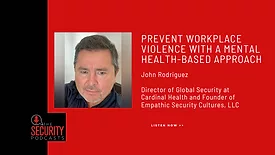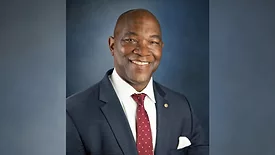Home » security leaders
Articles Tagged with ''security leaders''
The Security Podcasts
Prevent workplace violence with a mental health-based approach
Listen to corporate security leader John Rodriguez in the latest Security podcast.
February 8, 2023
Sign-up to receive top management & result-driven techniques in the industry.
Join over 20,000+ industry leaders who receive our premium content.
SIGN UP TODAY!Copyright ©2026. All Rights Reserved BNP Media.
Design, CMS, Hosting & Web Development :: ePublishing










